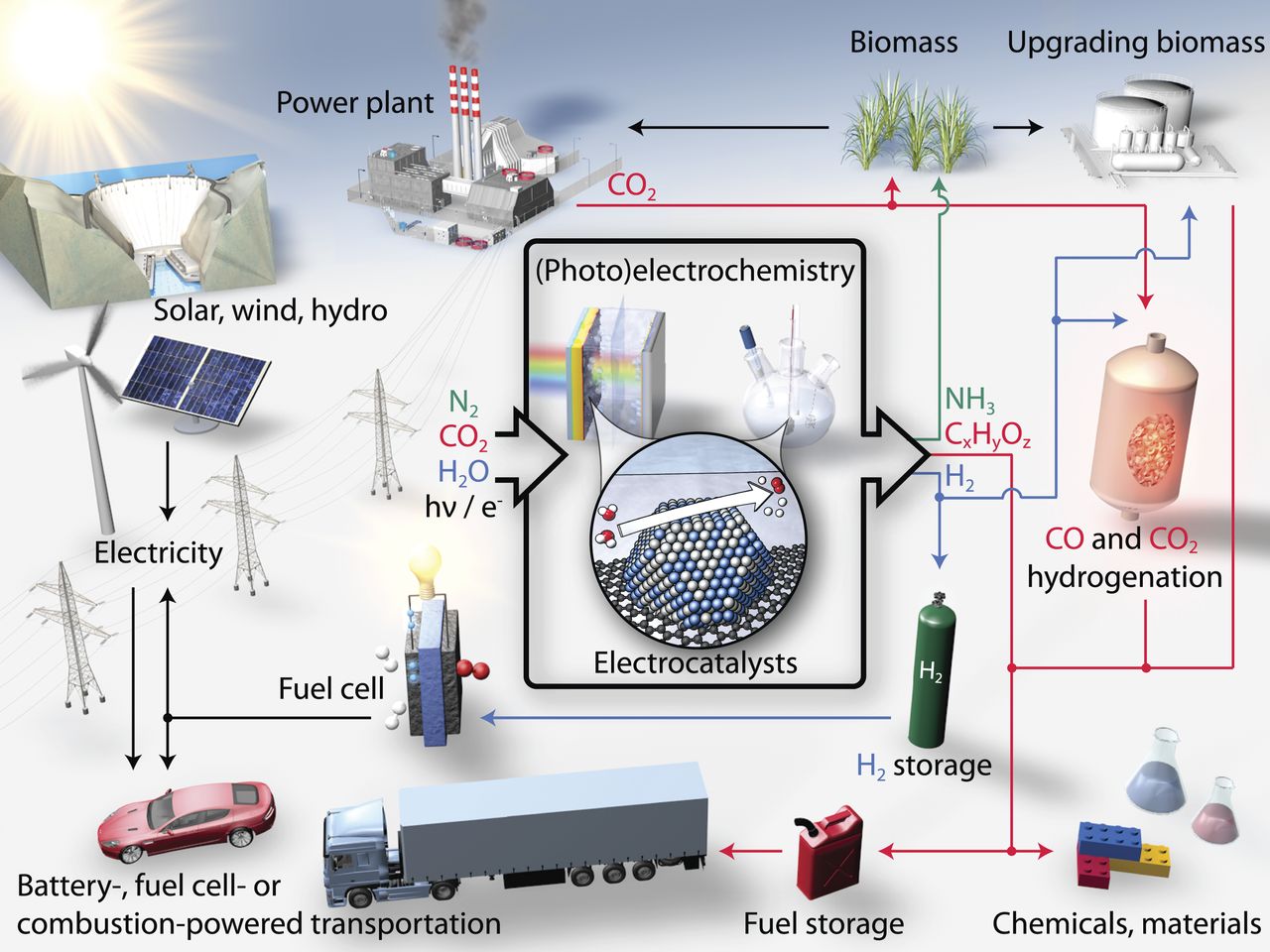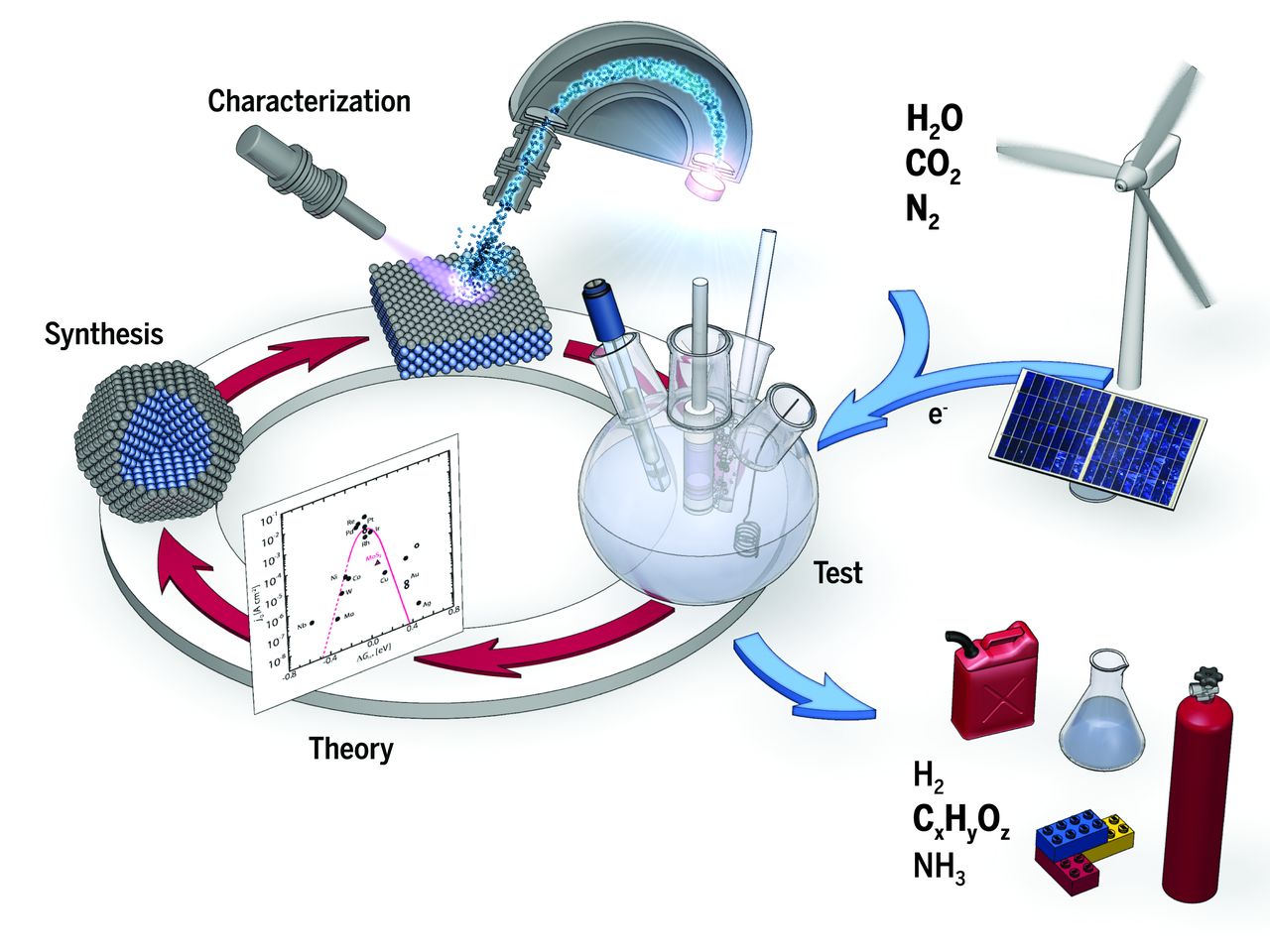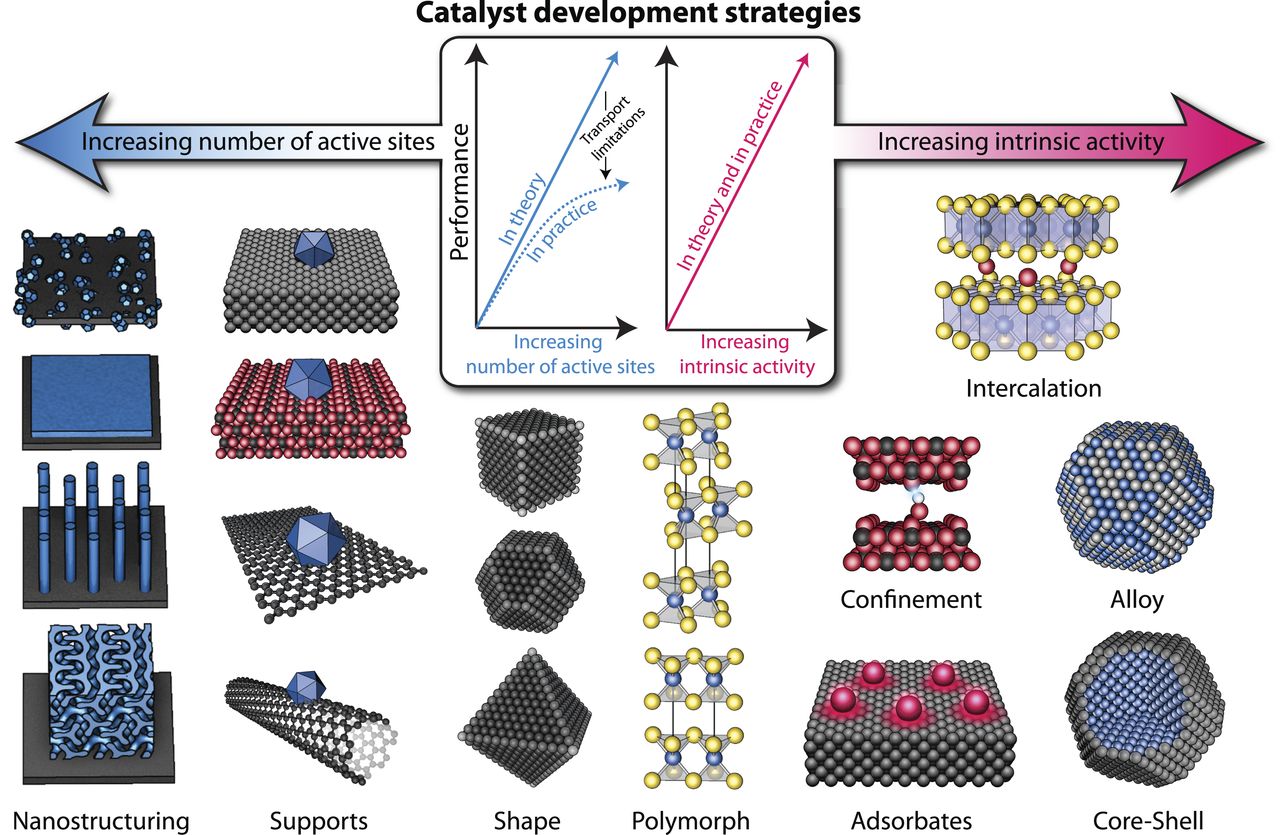Our research group investigates chemical transformations in energy. More
specifically, we study the chemistry and physics of materials as they relate
to catalyzing chemical reactions of interest. Generally speaking, we study
two types of reactions: those that convert water and CO2 into fuels and
chemicals utilizing renewable energy (e.g. solar or wind), and those that
convert those fuels back into usable energy in the form of electricity.
Some of our group members are focused on engineering the electronic
properties of semiconductors in order to improve their ability to harvest
solar photons to then convert that energy into a more storable form, that
of chemical fuels. Other group members are focused on surface chemistry
of materials, seeking to engineer their atomic and electronic properties
in order to deliver fast reaction rates with high product selectivity and
catalyst durability. Some of these materials are then incorporated into
devices for energy storage and conversion systems.
Overview


Much of our research effort is centered on nanomaterials to achieve our research goals, aiming to understand and then exploit new and exciting materials properties that emerge at nano-scale dimensions. Our research approach begins with materials design, as we hypothesize interesting materials (nanostructures, compositions, etc.) for energy applications. We then synthesize these materials with atomic-scale precision, and characterize them with state-of-the-art microscopy and spectroscopy techniques in order to understand their atomic structure and electronic properties. We then evaluate these materials for chemical, photochemical, and thermochemical reactions, aiming to understand how they function at the most fundamental level. All of this information is then incorporated into the next round of materials design with the goal of improving functionality from there.

